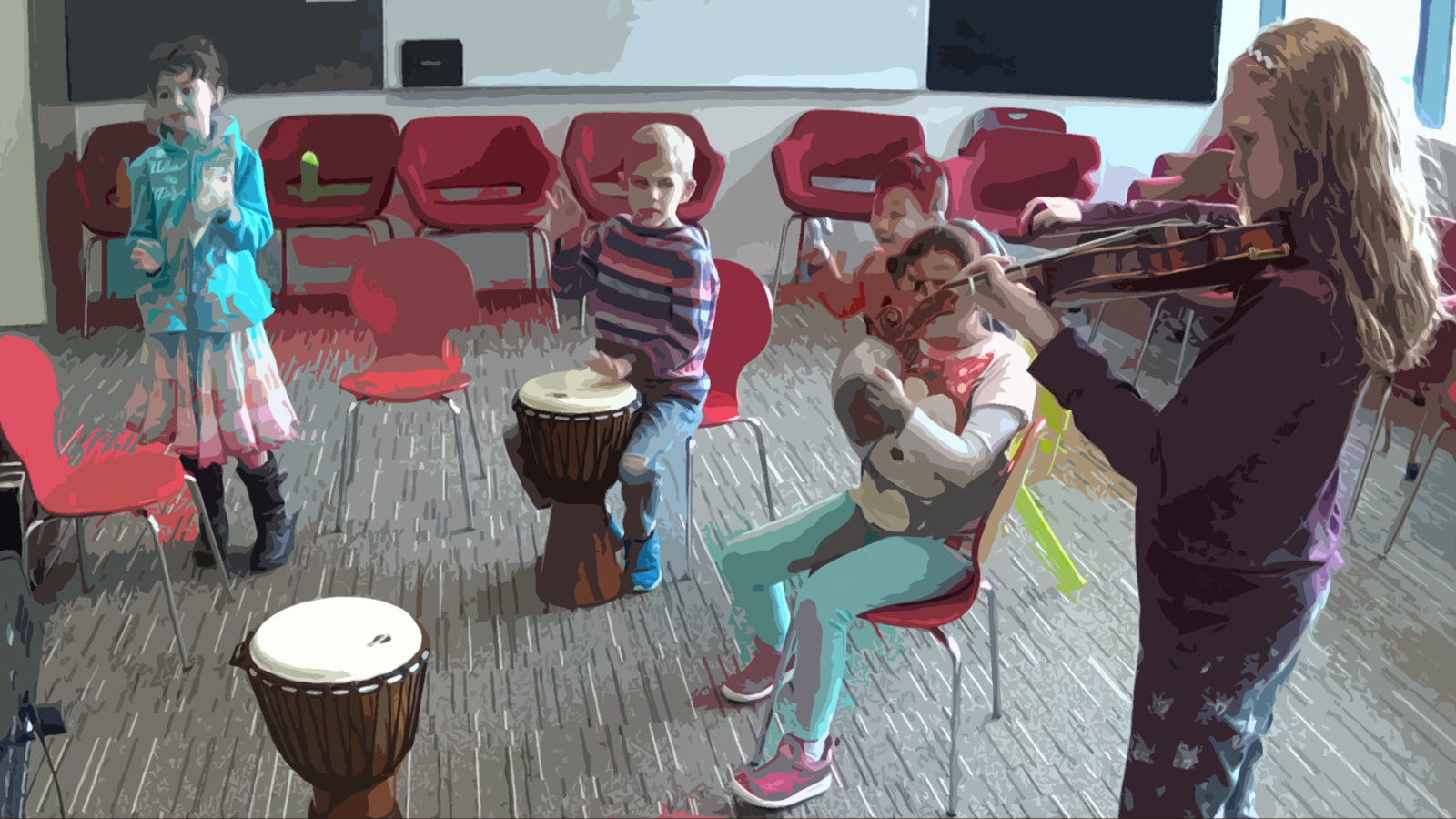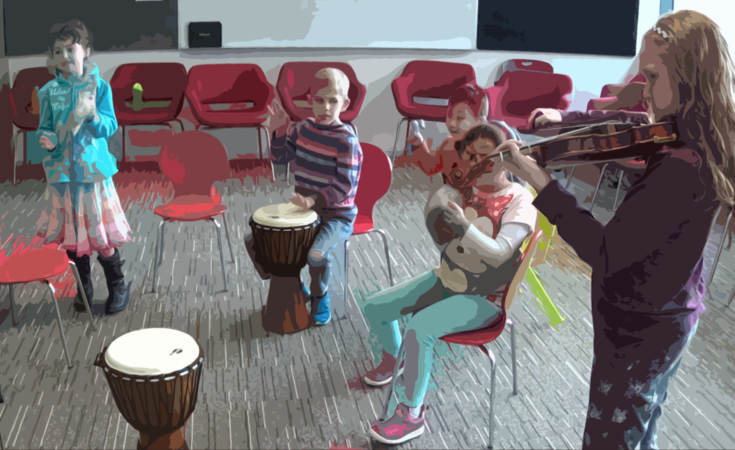A 12-week music program is helping deaf and hard-of-hearing children learn to optimize their hearing aids and cochlear implants, by teaching them to better understand the sounds they detect.

Image Credit: Fresh Science
The program, developed by Dr Chi Yhun Lo from Macquarie University, helps the children to extract meaningful information, such as separating noise from what they want to hear, a skill that is critical to their education and emotional development.
“Deafness is often seen as a barrier to engagement with music,” says Chi. “On the contrary, music actually is an excellent way to improve the problems associated with hearing loss.”
For children with recently acquired cochlear implants or hearing aids, the world can be a confusingly noisy place. The devices do not teach them how to pick out the signal in the noise – their teacher’s voice in the classroom, or their friend’s voice in a noisy playground.
But group music lessons and app-based home activities in which children sing, dance, play instruments and become involved in games like ‘guess the instrument’ helps them sort out different types of sounds.
Chi’s research, published earlier this year, found that such music groups boosted the children’s general capacity to learn, as well as their emotional health.
Originally a musician and audio engineer for events like the Sydney Festival, Chi now uses his skills to understand speech and hearing better.
Professional musicians are excellent listeners. We’re trained to identify subtle changes in tone, pitch and timbre, all the things which make up the rich character of a sound.”
Dr Chi Yhun Lo, Macquarie University
The program was inspired by Chi’s previous research, which found that music training helps people with cochlear implants understand ‘prosody’ or the rhythms of stress and intonations which are critical to detecting emotion in voice, or figuring out whether something is a question or a statement.
“My study shows that music training is particularly helpful, as it teaches kids to pick up quick and detailed changes in sound,” says Chi. “It was heartening to see rapid improvements in our students’ social wellbeing – improved peer relationships and emotional regulation, as well as a drop in anxiety and depression.”
The development of the program was supported by the Shepherd Centre, a specialist service for children with hearing loss. Ingrid Steyns, Principal Manager of Clinical Learning says the Centre recognizes the value of music in intervention and listening skill development.
“The benefit of music for children with hearing loss is such a valuable and important area for research, and the evidence-based information that comes from the development of tools such as these helps us to support the full development of each deaf child,” says Ingrid.
“The Shepherd Centre has supported the translation of the outcomes from this project into clinical practice and building knowledge of the importance of these skills in training programs for professionals working with children and young people with hearing loss.”
Trudy Smith from NextSense Institute, which offers continuing professional education in sensory disability, says the programme affirmed for her that music is a necessary part of every child’s program- not just those with hearing.
“The scientific rigour of the program gives us confidence in the effectiveness of music therapy on speech perception skills and social development for children who are deaf or hard of hearing,” says Trudy.
Source:
Journal references:
- Lo, C.Y., et al. (2022) Beyond audition: psychosocial benefits of music training for children with hearing loss. Ear and Hearing. doi.org/10.1097/AUD.0000000000001083.
- Lo, C.Y., et al. (2022) Can Music Training Improve Listening Skills For Children With Hearing Loss. Frontiers for Young Minds. doi.org/10.3389/frym.2021.704006.
- Lo, C.Y., et al. (2020) Music Training for Children With Sensorineural Hearing Loss Improves Speech-in-Noise Perception. Journal of Speech, Language, and Hearing Research. doi.org/10.3389/frym.2021.704006.


































